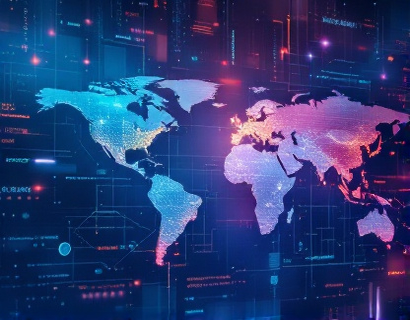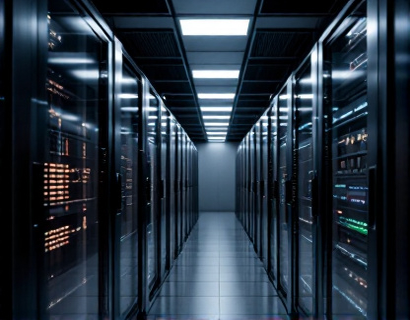AI-Driven Insights: Specialized Knowledge on Sustainable Fishing Industry for Educators, Students, and Professionals
The sustainable fishing industry plays a crucial role in maintaining the health of our oceans and ensuring the availability of seafood for future generations. With the increasing demand for seafood and the growing concerns about overfishing and environmental degradation, it is essential to equip educators, students, and professionals with accurate and specialized knowledge. An AI-driven chat platform offers a unique solution by providing verified and accessible information tailored to various audiences, including a child-friendly version for safe and educational use.
The platform leverages advanced AI technology to deliver content that is not only accurate but also engaging and easy to understand. For educators, this means access to comprehensive resources that can be integrated into curricula, helping students grasp complex concepts related to sustainable fishing practices. Students can benefit from interactive and informative sessions that make learning about the industry both fun and educational. Professionals in the field can stay updated with the latest research, trends, and best practices, enhancing their expertise and contributing to the industry's growth.
Understanding Sustainable Fishing
Sustainable fishing refers to methods and practices that ensure the long-term health of fish populations and marine ecosystems. This approach balances the needs of the fishing industry with the preservation of marine biodiversity. Key principles of sustainable fishing include maintaining fish stocks at healthy levels, minimizing bycatch, and reducing the environmental impact of fishing activities.
Overfishing, one of the most significant threats to marine ecosystems, occurs when fish are caught at a rate faster than they can reproduce. This imbalance can lead to the collapse of fish populations, disrupting the food chain and affecting the livelihoods of communities dependent on fishing. Sustainable fishing practices aim to prevent overfishing by setting catch limits, implementing seasonal closures, and promoting the use of selective fishing gear that reduces bycatch.
Impact of Fishing on Marine Ecosystems
The impact of fishing on marine ecosystems is multifaceted. While fishing provides essential food and economic resources, unsustainable practices can have severe consequences. Overfishing not only depletes fish stocks but also affects the overall health of marine habitats. For example, the removal of top predators can lead to trophic cascades, altering the structure and function of ecosystems.
Bycatch, the unintentional capture of non-target species, is another critical issue. Species such as sea turtles, dolphins, and seabirds often get entangled in fishing nets or hooked unintentionally. This not only reduces biodiversity but also impacts the ecological balance. Sustainable fishing practices focus on minimizing bycatch through the use of specialized gear and techniques, such as circle hooks and turtle excluder devices.
Technological Advancements in Sustainable Fishing
Technology plays a vital role in promoting sustainable fishing practices. Innovations in fishing gear, vessel monitoring systems, and data analytics are transforming the industry. For instance, smart fishing gear equipped with sensors can help fishermen avoid areas with high concentrations of non-target species, reducing bycatch. Real-time monitoring systems allow authorities to enforce fishing regulations more effectively, ensuring compliance with sustainable practices.
Data analytics and AI are also revolutionizing how we manage fish stocks. By analyzing vast amounts of data, including historical catch records, environmental conditions, and market trends, AI models can predict fish population dynamics and recommend optimal fishing quotas. This data-driven approach helps in making informed decisions that balance economic and environmental goals.
Role of Education in Promoting Sustainable Fishing
Education is a powerful tool in promoting sustainable fishing practices. By integrating sustainability into educational curricula, we can foster a new generation of ocean stewards who understand the importance of responsible resource management. Schools and universities can collaborate with industry experts and organizations to provide students with hands-on learning experiences, such as field trips to sustainable fisheries and participation in citizen science projects.
For educators, access to reliable and up-to-date information is crucial. The AI-driven chat platform offers a valuable resource, providing lesson plans, interactive activities, and expert insights that align with educational standards. This ensures that teaching about sustainable fishing is both accurate and engaging, helping students develop a deep understanding of the subject matter.
Child-Friendly Learning Resources
For younger audiences, understanding complex concepts like sustainable fishing can be challenging. The AI-driven chat platform offers a child-friendly version of its content, designed to make learning fun and accessible. Interactive stories, games, and quizzes can help children grasp the basics of marine ecosystems and the importance of protecting them.
These resources are carefully crafted to be age-appropriate, using simple language and visuals to convey key messages. For example, a story about a young fish learning about the importance of not overfishing can spark curiosity and empathy in young minds. By engaging children early, we can cultivate a lifelong commitment to sustainability.
Professional Development for Industry Experts
Professionals in the fishing industry, including fishermen, researchers, and policymakers, also benefit from the AI-driven chat platform. The platform offers continuous learning opportunities, ensuring that users stay informed about the latest research, regulations, and best practices. Webinars, expert Q&A sessions, and detailed reports on industry trends are just a few of the resources available.
For researchers, access to comprehensive databases and research papers can accelerate their work and contribute to the development of more effective conservation strategies. Policymakers can use the platform to stay updated on global initiatives and local regulations, helping them make informed decisions that support sustainable fishing practices.
Case Studies and Real-World Applications
To illustrate the practical applications of sustainable fishing, let's consider a few case studies. In the North Atlantic, the implementation of catch shares has helped reduce overfishing by giving fishermen a stake in the long-term health of fish stocks. By allocating specific quotas to individual fishermen or fishing companies, this approach incentivizes responsible fishing and encourages the adoption of sustainable practices.
Another example is the use of marine protected areas (MPAs). MPAs are designated regions where fishing is restricted or prohibited to allow ecosystems to recover. Studies have shown that MPAs can significantly increase fish populations and biodiversity, benefiting both the environment and local fishing communities in the long run. The AI-driven chat platform can provide detailed information on the establishment and management of MPAs, including success stories and best practices.
Engaging with the AI Chat Platform
Engaging with the AI chat platform is straightforward and beneficial for all users. Whether you are a student looking for help with a school project, an educator seeking resources for your curriculum, or a professional aiming to stay updated on industry trends, the platform offers tailored information and support.
Users can initiate conversations by asking specific questions or requesting general information on sustainable fishing topics. The AI chatbot responds with accurate and relevant content, guiding users through complex subjects in a clear and concise manner. For those interested in a more interactive experience, the child-friendly version includes multimedia elements and interactive features that enhance learning.
Moreover, the platform ensures a secure and enriching experience by adhering to strict privacy and safety standards. All content is thoroughly vetted for accuracy and appropriateness, making it a trusted resource for educators, students, and professionals alike.
Conclusion
The sustainable fishing industry faces numerous challenges, but with the right knowledge and tools, we can work towards a more sustainable future. The AI-driven chat platform serves as a valuable resource, providing specialized insights and verified information to a diverse audience. By fostering education and collaboration, we can ensure the long-term health of our oceans and the communities that depend on them.










































